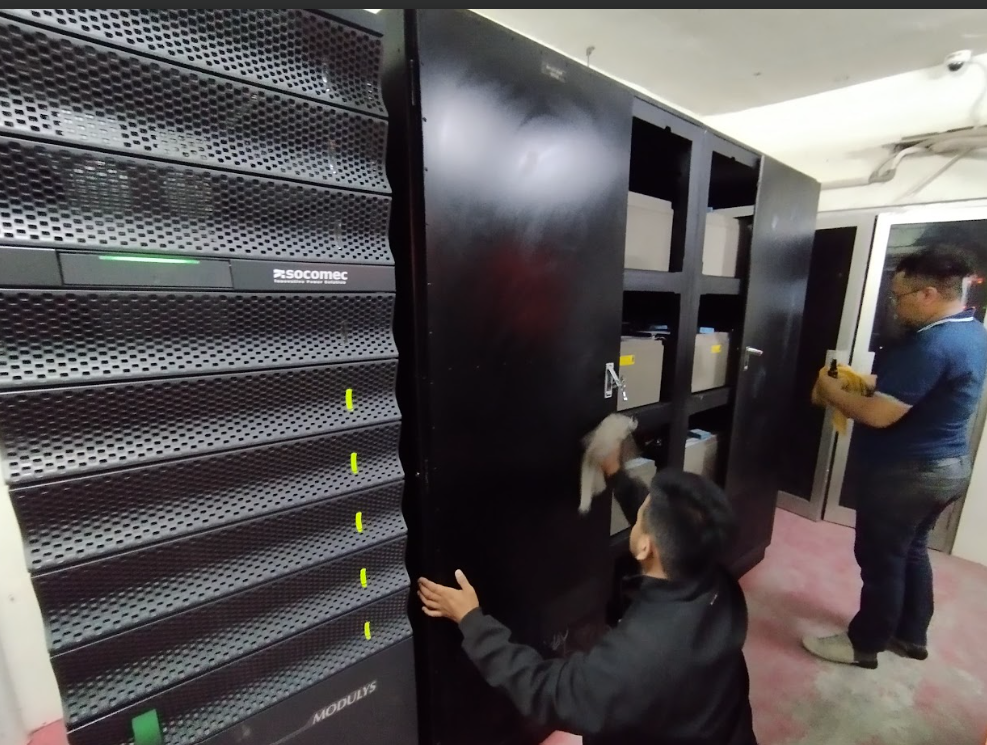The financial industry is rapidly evolving with the adoption of more advanced technologies and increasing operational demands. One of the key components supporting IT infrastructure in this sector is the Uninterruptible Power Supply (UPS). In a dynamic and demanding environment, a reliable UPS system is crucial for maintaining business continuity, especially in the financial sector, which relies heavily on data availability and seamless transaction processes. Distributor modular UPS Indonesia plays a vital role in providing flexible and reliable power solutions, particularly for the financial industry, which requires scalable and efficient power management.
Infrastructure Challenges in the Financial Industry
The financial sector faces numerous challenges related to the need for reliable and efficient power infrastructure. Some of the key challenges in maintaining operational stability include:
- Growing Data Volume: Banks, investment firms, and insurance companies process millions of transactions daily. Each transaction requires robust IT infrastructure to support secure and rapid operations.
- Data Security: The financial sector deals with highly sensitive information. Customer data, transaction histories, and financial details must be securely managed, even during power outages.
- Strict Regulatory Compliance: Financial industry regulations are stringent concerning data security, accessibility, and disaster recovery. Therefore, having a UPS system capable of ensuring uninterrupted operations is essential.
- Rapid Expansion: The financial sector requires flexibility in expanding or scaling down infrastructure as business needs evolve. Hence, modularity in UPS solutions is highly beneficial.
Modular UPS Solutions for the Financial Sector
Modular UPS solutions offer greater flexibility in power management for the financial industry. Compared to traditional UPS systems, modular UPS provides several advantages tailored to the dynamic infrastructure needs of the financial sector.
- Scalability Flexibility: Modular UPS allows financial institutions to add or reduce power capacity as needed. When data volume increases or business expands, additional modules can be easily integrated into the existing system without replacing the entire UPS system.
- Energy Efficiency: In a highly dynamic environment like the financial industry, operational efficiency is crucial. Modular UPS is designed to improve energy efficiency, helping companies reduce electricity costs and maintain operational sustainability.
- Simplified Maintenance: The modularity of the UPS system allows each module to be repaired or replaced without disrupting the entire system. This is critical for ensuring continuous operation in data centers that support real-time financial transactions.
- Improved Redundancy: Using multiple modules in one system minimizes the risk of system failure. If one module fails, others can continue to operate, ensuring that the UPS system remains functional and operational continuity is maintained.
The Role of Distributor Modular UPS Indonesia in Supporting the Financial Industry
Distributor modular UPS Indonesia plays a vital role in ensuring that the financial industry has access to the right power solutions tailored to their needs. Key roles include:
- Technical Consultation: Experienced distributors provide in-depth consultation services to understand the power requirements of the financial sector and recommend the most suitable solutions.
- Procurement of High-Quality Products: Modular UPS distributors in Indonesia work with leading manufacturers to provide high-quality products. This ensures that UPS systems used in the financial sector meet high standards of reliability and performance.
- Professional Installation and Maintenance: Successful UPS implementation requires proper installation and regular maintenance. Distributor modular UPS Indonesia provides professional installation services and routine maintenance to ensure that the UPS systems operate optimally at all times.
- Robust After-Sales Support: Reliable and prompt technical support is essential for the financial industry. A good distributor provides after-sales services, including repairs, module replacements, and real-time monitoring to ensure operational reliability.
Modular UPS Technology for the Future of the Financial Industry
Modular UPS technology continues to evolve to meet the growing demands of complex infrastructure in the financial sector. Some innovations offered by distributor modular UPS Indonesia for the future of the industry include:
- Remote Monitoring: Remote monitoring technology enables IT managers in the financial sector to monitor the performance of UPS systems anytime, anywhere. This allows for early detection of issues and rapid mitigation.
- Integration with Energy Management Systems: Modern modular UPS is designed to integrate with broader energy management systems, enabling more efficient and measurable power management.
- Higher Energy Efficiency UPS: The latest technology is designed to reduce energy consumption, helping financial institutions meet energy efficiency and sustainability goals.
Conclusion
The financial industry requires a strong and flexible power infrastructure to support its highly dynamic operations. Modular UPS solutions offer the flexibility, efficiency, and reliability needed to maintain operational continuity and protect sensitive data. Distributor modular UPS Indonesia, like Climanusa, plays a crucial role in providing UPS solutions tailored to the needs of the financial sector. By choosing the right distributor, financial institutions can ensure that they are equipped with the optimal power solutions to support growth and operational efficiency.
At Climanusa, we understand the importance of operational continuity in the financial sector. As a leading Distributor Modular UPS Indonesia, we offer modular UPS solutions designed to support flexibility and energy efficiency in the financial industry. Trust Climanusa for your UPS needs, and experience the difference in quality and reliability.
For more information, please click here.
–A.M.G–

